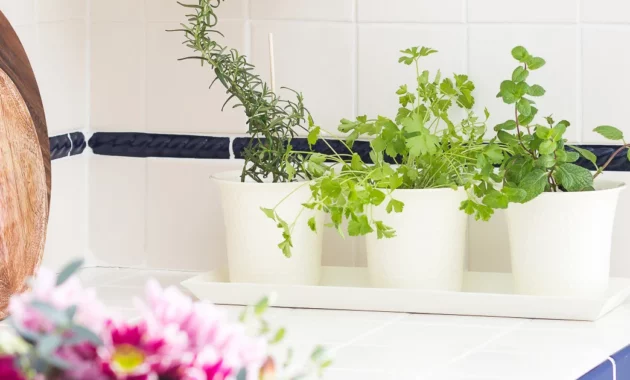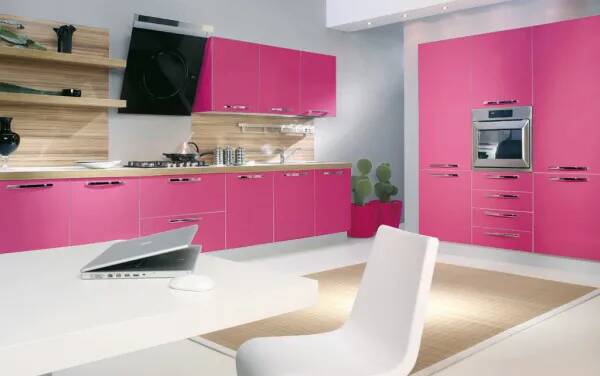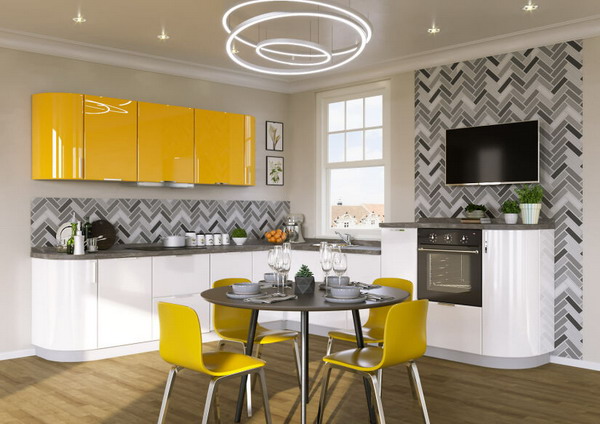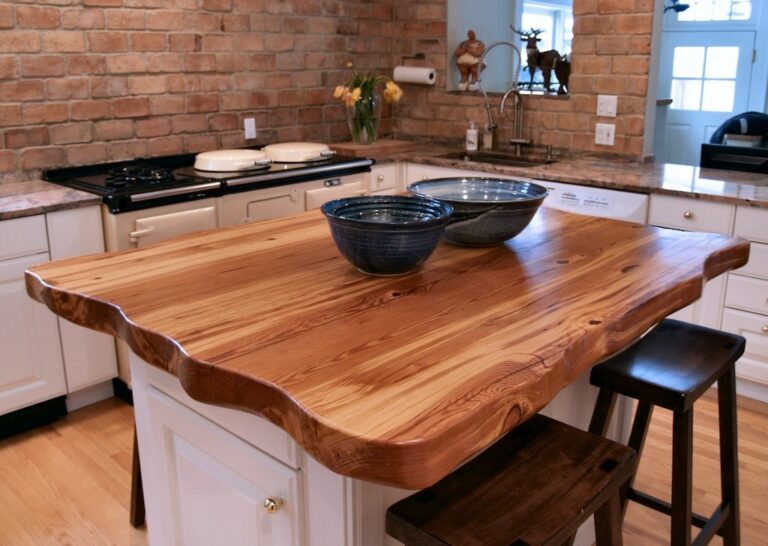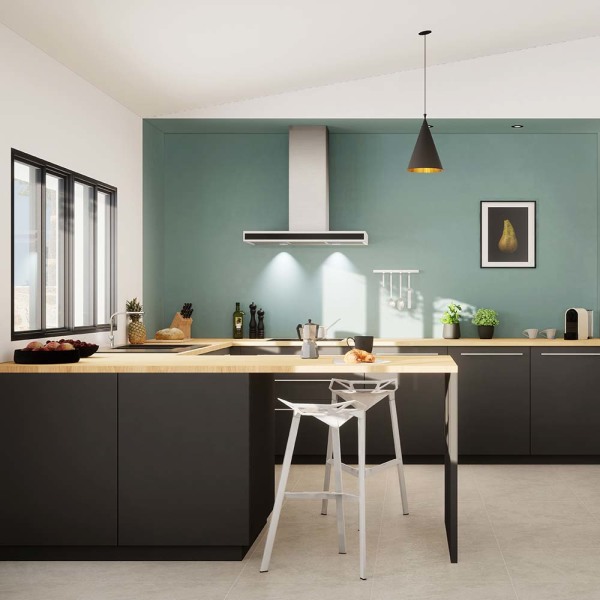Herb garden in the kitchen: how to design your herb bed
With their intense aroma, fresh herbs are just the right thing to refine delicious dishes. In addition, the plants are fragrant and provide more greenery in the area. Therefore, a herb garden is very popular in the kitchen. Whether in the balcony box, in terracotta pots or in hanging containers, even small apartments offer space for herbs in the kitchen.
Find out here which herbs are suitable for the herb garden kitchen, which pots are recommended, how much soil and water are needed and how to use the herbs in the kitchen. In addition, you will receive a practical step-by-step guide to create the garden.
Contents
- Which herbs fit into the herb garden kitchen?
- Where are herbs best in the kitchen?
- Herb garden in the kitchen: which pots are suitable for herbs?
- Which soil and how much water do the kitchen herbs need?
- How do I use the herbs in the kitchen?
- Step-by-step instructions
- Conclusion: Enjoy the Herb Garden project
Which herbs fit into the herb garden kitchen?
The herb garden kitchen is particularly suitable for herbs that can grow indoors. Depending on the lighting conditions, you should choose particularly resistant, frugal plants. The following herbs are suitable:
- Parsley: The popular herb requires eight hours of sunlight a day. Therefore, place it near the window.
- Basil: Basil also needs a lot of light and prefers warm temperatures. This must-have of Italian cuisine grows well near a heater.
- Sage: Sage likes it dry and needs regular pruning. The frugal herb thrives under almost all conditions.
- Thyme: Gravelly soil and spray moisture can be easily provided in the kitchen so that thyme thrives.
- Chive: Kitchens with lots of light and cool temperatures are very suitable for chives. The balcony is also an option.
- Balm: This fragrant herb is easy to grow. It goes especially well with salads and in sodas.
- Oregano: This pizza ingredient needs a loose bottom and partial or full sunlight.
- Rosemary: Here, too, take care of a well-drained soil, which must not become too dry.
Many of these herbs can be harvested all year round. If necessary, you can help out with a special lamp. After all, the more light the herbs receive, the faster and better they grow.
By the way: micro greens such as watercress and succulents such as aloe vera are also very suitable for the kitchen. They have even fewer requirements than herbs and perfectly complement your garden. If you are also looking for an eye-catcher that cleans the air, an easy-care green lily is a good choice for the kitchen.
Where are herbs best in the kitchen?
Herbs need sufficient sunlight both in summer and in winter. Therefore, they are best kept on the windowsill. However, make sure that the pots should not be placed directly above the heater. Because this dry heat from below can cause the plants to shrink.
It is also important that the heat does not accumulate. Accordingly, the pots need some distance from each other and from the window. Ideal for Mediterranean herbs is a southern or western orientation. Some herbs feel more comfortable in the eastern and northern orientation. These include chives, parsley and basil.
As an alternative to the window sill, you can also use a shelf for the herbs. This should also receive a lot of sunlight, but at the same time not get too warm. If necessary, you can help with fluorescent light. Then the herbs in the kitchen also thrive on the table, the kitchen counter or on the wall.
Herb garden in the kitchen: which pots are suitable for herbs?
You should take good care of the appropriate containers for your herb garden in the kitchen. Terracotta pots are ideally suited for herbs, as they are air-permeable. Most pots have a small hole in the bottom through which excess water can escape. It is collected by the coaster.
Important: the pot must be large enough for the herbs. If necessary, you can repot the plants.
If you are new to herbalism, you should start with mature plants. This is easier than raising seeds. Check how much root space the particular plant needs. Each herb should have its own pot. For example, thyme robs other plants of their space, as it spreads strongly at the roots, but also at the top.
Which soil and how much water do the kitchen herbs need?
Kitchen herbs thrive best with normal potting soil, as they are quite undemanding overall. But you can also use special herbal earth. Pay attention to what requirements the respective herbs have. For Mediterranean plants such as thyme or oregano, it makes sense to mix a little sand into the soil to prevent waterlogging.
Water the herb garden in the kitchen regularly. Press down on the soil of the herbs for the test. If it sticks to the finger, it is still wet enough. On the other hand, if the earth fills up dry, the herbs need water.
If water accumulates in the coaster, you should dispose of it. Alternatively, waterlogging forms, which can damage the plants and also lead to fungi.
Tip: if necessary, you can add a fertilizer to the herbs once a month. It is best to mix it with the watering water.
How do I use the herbs in the kitchen?
The herb garden in the kitchen not only looks beautiful and spreads a delicate fragrance, but also offers added value for the dishes. Harvest the herbs regularly and use them either fresh, freeze or dry.
The herbs are used according to personal taste. Mediterranean herbs go best with Italian, Spanish or Greek dishes. They also do very well in salad and sometimes even in drinks.
Our recommendation: Let your herbs in the kitchen inspire you to try new dishes and sauces.
Step-by-step instructions
For an overview, here you can see once again how to create your own herb garden in the kitchen:
- Get plant soil
- Get pots and vessels
- Fill in the soil to almost the edge and press deep holes into it with your fingers at a sufficient distance. Insert cuttings and tap them firmly.
- Pour water and keep a good eye on it, especially in the first few days
- Periodically pour from the bottom or immerse the pot in water
- If necessary, fertilize with coffee grounds or organic fertilizer
- Harvest and enjoy!
Conclusion: Enjoy the Herb Garden project
A herb garden in the kitchen is a wonderful project with results that will please the whole family. The breeding is very cheap and quite uncomplicated. As a result, you will get fresh ingredients with which you can refine your dishes. In addition, the herb garden is nice to look at. We wish you a lot of fun!
